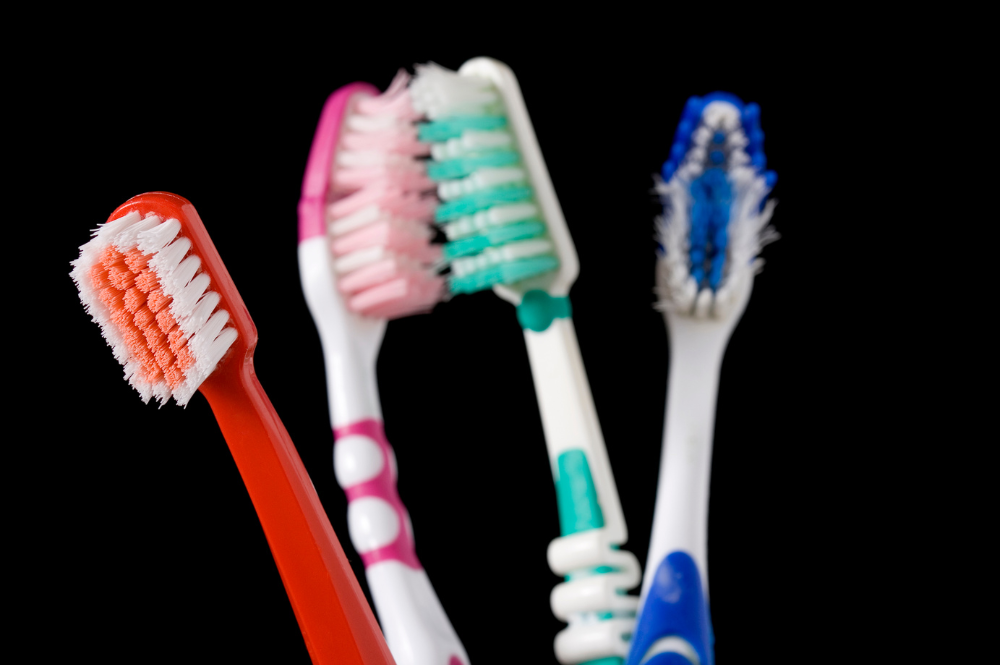Oral Health & HYGIENE
What does the phrase "oral health" mean to you? No new cavities at your dental checkup? That's certainly part of it. But it's really so much more than a lack of tooth decay. Good oral health means a mouth that's free of disease - which can range all the way from mild gingivitis (gum inflammation) to oral cancer; a bite that functions well enough for you to eat without pain and get ample nutrition; and a smile that lets you express your happiest emotions with confidence. Simply put, oral health is a crucial component of your overall health and well-being.
It's important to realize that small - and readily treatable - problems in your mouth can become more complicated, painful and expensive if neglected for too long. Some of these oral health conditions may even have ramifications throughout the whole body. Gingivitis, for example, can sometimes progress to periodontitis - a more serious form of gum disease that can loosen teeth and cause them to fall out. Missing teeth can lead to bone loss in the jaw and inadequate nutrition. And numerous studies have shown that people with severe gum disease may be at increased risk for developing cardiovascular disease. The moral of this story: Routine maintenance can pay off big.
What You Can Do to Stay Healthy
One of the most important things you can do to safeguard your oral health is to maintain a daily oral hygiene routine that effectively removes plaque from your teeth. It's the bacteria that thrive in the plaque biofilm that cause so many oral health problems. Effective oral hygiene involves brushing your teeth twice daily with a fluoride toothpaste and flossing at least once per day to remove plaque from between the teeth.
Nutrition and lifestyle choices also play an important role. You don't have any control over hereditary factors that may predispose you to gum disease - but you do have control over how much sugar you eat and when you eat it; how often you exercise; whether you smoke; and how often you visit the dentist.
How Dentistry Can Help
If you only see a dentist when problems arise, you may be missing out on some important benefits! As doctors who specialize in oral health, dentists offer a wide range of preventive services. At your regular exams, for example, you will be checked for any signs of oral cancer, tooth decay, gum disease, and other oral infections; hard-to-reach deposits from your teeth will be cleaned; and you can get answers to any questions you have on topics ranging from oral hygiene issues to the connection between oral health and systemic diseases.
So please don't wait for a serious problem to come up before you make an appointment at the dental office. Having regular checkups could save you lots of time, aggravation, and cost in the long run. It could even save your teeth! Working together, we can take proactive steps toward a healthy future.
Tooth Decay Prevention
Tooth decay is often called the second most prevalent human disease, after the common cold. Without effective treatment (as was the case through most of history) it can lead to pain, tooth loss, and sometimes worse illnesses. Even today, it's estimated to affect over a quarter of U.S children from ages two to five, and half of those aged 12-15. But it doesn't necessarily have to! You can take steps to prevent tooth decay from harming your teeth — or those of your loved ones.
There's one important fact you should understand up front: No single “magic bullet” can stop tooth decay in every case. Instead, fighting decay should be viewed as a process of preventive maintenance, like taking care of your car — except that (unlike a car) your natural teeth, with proper care, can last a whole lifetime. The basic aspects of this process are practicing good oral hygiene at home, and coming in to the dental office for regular cleanings and checkups.
If you've been in the dental office for routine visits, you're probably already familiar with the special tools dentists use to remove buildups of plaque (a bacterial biofilm) and tartar (a hardened deposit, also called calculus) from your teeth. Hand-held instruments, ultrasonic scalers, or both may be used to give your teeth a thorough cleaning. Afterwards, your teeth are thoroughly checked for decay, and cavities are treated when necessary.
Yet there's still more that can be done to prevent tooth decay. Could your diet be a contributing factor? Is your brushing technique adequate? Could you benefit from additional preventive treatments? Today, with our increased understanding of what causes tooth decay and how to treat it, it is possible to focus on what decay prevention tactics would work best in your particular case. In fact, it's now possible to assess each individual's risk factors for decay, and concentrate on doing what's most effective for you.
How Does Decay Start?
It's useful to think of the mouth as a dynamically balanced ecosystem, in which living organisms, including helpful and harmful bacteria, are constantly interacting. When conditions are right — namely, in the presence of certain sugars — some pathogenic (harmful) bacteria produce acids that cause teeth to lose minerals and begin breaking down. Even a diet having excessive acidic foods can influence deminerialization of your teeth. But in more favorable conditions, the damage these pathogens do is undone by the body's own healing mechanisms — which includes your healthy saliva.
A major goal in decay prevention is to tip the balance in favor of the beneficial processes. Keeping up a regular habit of brushing and flossing, getting adequate fluoride, and a diet with limited acidic foods is certainly helpful. Yet even with these measures, some individuals will be more prone to tooth decay than others, and may need extra help and guidance.
Additional Steps to Prevent Tooth Decay

If you're one of these individuals, it may help you to learn effective brushing techniques and practice other measures at home — for example, using special toothpastes or mouthrinses. When necessary, in-office treatments such as topical fluoride applications are available. If you aren't getting enough fluoride through drinking water or other sources, this treatment can help prevent tooth decay. Anti-bacterial treatments may also be beneficial in some cases, as is nutritional counseling.
Finally, if your child's teeth are susceptible to tooth decay, consider having a dental sealant applied. This is a practically invisible layer of plastic resin that is placed on the top (chewing) surfaces of the back teeth. It's a painless procedure that fills in the natural pits and folds of the tooth, making them much more resistant to bacterial damage.
So, don't think that tooth decay is inevitable — instead, find out what you can do to help prevent this disease from affecting you or your loved ones.

